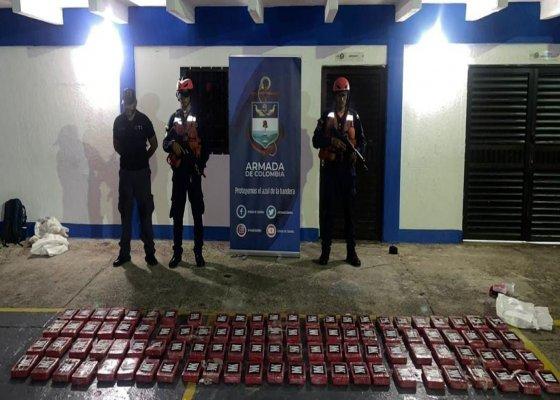In the framework of two joint operations conducted by the Colombian Navy and the Colombian Aerospace Force, 788 kilograms of cocaine were found by troops in the Colombian Caribbean, directly damaging the finances of organizations serving drug trafficking.
The first operation was carried out north of Cartagena in the department of Bolívar, thanks to the investigations carried out in the area. Coast Guard units with the support of a Colombian Aerospace Force aircraft tracked a go fast type ship that was traveling suspiciously in the waters of the Caribbean Sea.
Given the existence of the naval units, the men who crewed the boat searched for a beach in the sector known as Arroyo de Piedra, disembarked the cargo and tried to hide it by burying it in the sand and then escaped. Thanks to the timely reaction of a specialized team, the sailors of the Caribbean Naval Force secured all the material, recovering 22 bags that contained an alleged illicit substance inside.
In the second operation, a go fast type boat was detected traveling at high speed through the Islas del Rosario sector at night. Immediately, members of the Naval Institution began a pursuit at sea, identifying four crew members on board the ship, who, upon realizing the existence of the authorities, began to escape, conducting evasive maneuvers and leaving an indeterminate amount of bags at sea.
With the expertise of the Colombian sailors, the interception of the ship was carried out, the arrest of the crew was possible as well as the recovery of four sacks of the sea.
The men and the material were taken to the Coast Guard Station of Cartagena, where members of the Technical Investigation Corps - CTI (Technical Investigations Corps) of the Attorney General's Office, conducted the Approved Preliminary Identification Test – PIPH, establishing that it was 788 kilograms of cocaine hydrochloride.
With this result, the organizations serving drug trafficking stop receiving more than 26 million dollars into their logistical and financial structures. In the same way, the commercialization of approximately two million doses of cocaine on the international illegal market was prevented.





